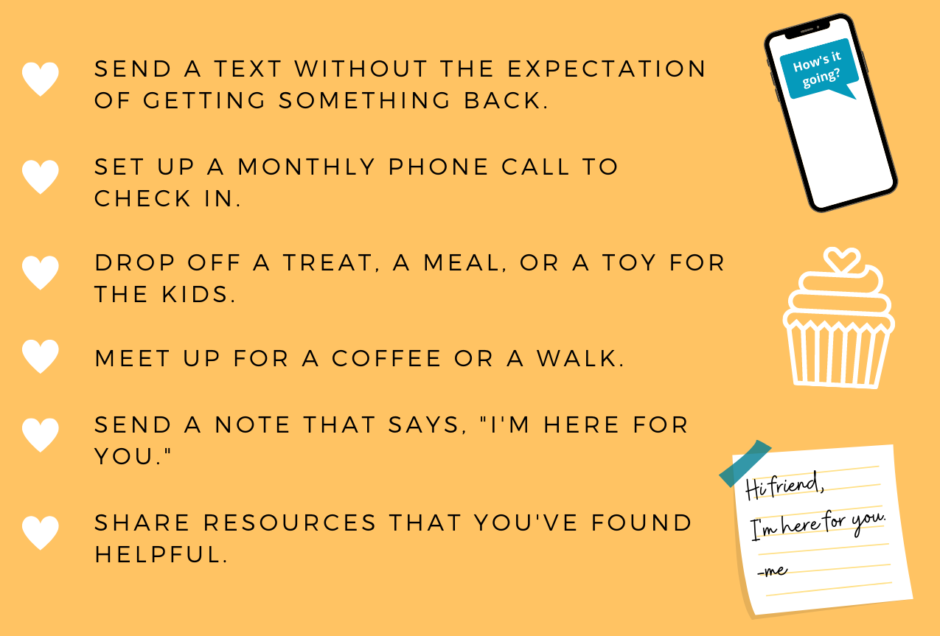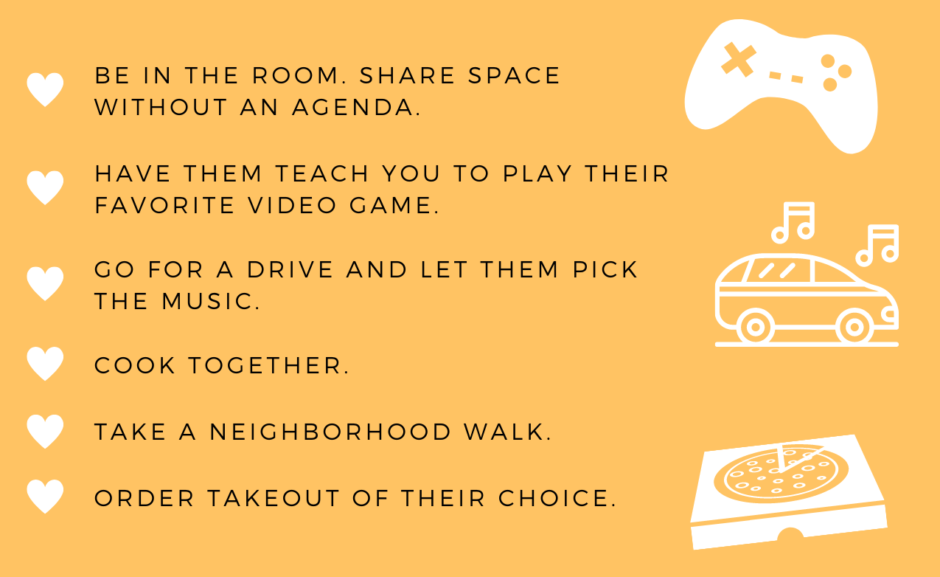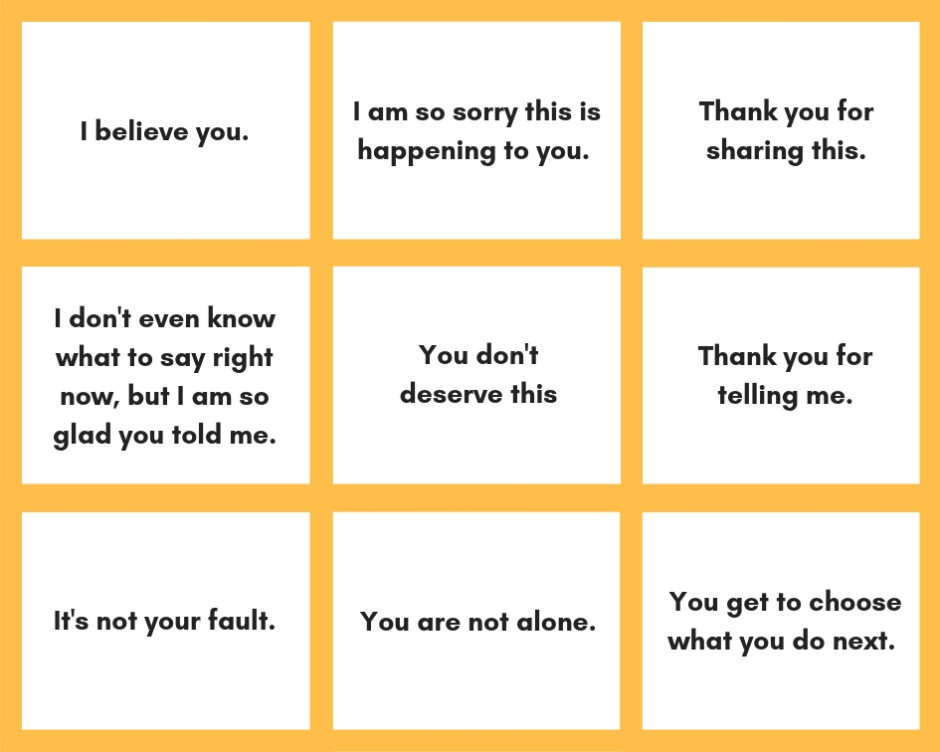These three strategies show your willingness to show up and support someone. You don’t need to be an expert or have all the answers. Just being there and available is what people have told us helps most.

Ask a Question

Listen Up

Stay Connected
Ask a question
Asking “How’s it going?” and really caring about the answer is powerful.
Some other possible questions to ask:
- What is your biggest concern?
- What are you most worried about?
- What do you need or want?
- What do you need from your community?
- How can I help?
- What is life like with [partner’s name]?
- How are the kids doing?
- Is this relationship energizing or draining?
- Do you get to do the things you like to do?
- What happens if you disagree?
- What does arguing look like in your relationship?
Listen up
Really listen.
Listen without having your own agenda. Being heard helps. Acknowledgment makes all the difference.
Things you can say to people who have experienced harm:
When you’re listening deeply to someone, you are not trying to get to your point of view, you are trying to hear their perspective.
You’re also listening for what the person thinks about risks, priorities, and concerns. Bottom line: you are listening to hear what the person is experiencing, what they want, and how you can help.
Starting to feel worried? If you’re hearing something (they’re isolated, being monitored or stalked, the person has a weapon) that makes you concerned they are in immediate danger, you (or both of you together) can call the National Domestic Violence Hotline to come up with a plan to stay as safe as possible.
Some particularly risky stuff to listen for:



If any of these are present, be sure to reach out to a domestic violence advocate for help and support.
Stay connected
It can take a long time for things to get better, and it can be difficult to hang in there through it all. But staying connected is one of the most helpful things you can do. When someone is isolated, the abuser has far more power and control over their lives. You do not need to know all the answers or agree with every decision to be helpful. Instead, consistently show up, take on what you can, and ask for help with things that are difficult for you.
Connection also means no ultimatums. We’ve learned that tough love is not what folks need. You might be the only person they are reaching out to. If you give them an ultimatum that they can’t live up to, they won’t have anyone left. Instead, try to leave the door open to make it easy to keep coming back to you.
Even if the person you’re concerned about doesn’t reach out, you can be the one to reach out. This takes some of the power away from the abuser and can be a lifeline for your loved one. It might be that they aren’t calling or reaching out because they can’t, not because they don’t want to or don’t need support.
That said, we know that it’s really hard to stay connected when you’re worried and scared and nothing seems to be changing. It is not helpful to sacrifice your own well-being in the hopes of helping someone else.
If you need help, talk to your trusted people and reach out to experts. If you need to take a break, take it.
If someone is having a hard time in their relationship, you can be a lifeline. There are lots of ways to stay connected. You can:

Stay connected with teens too! You can:

It doesn’t need to be perfect to have an impact. Just making an effort is what matters most.
Feeling nervous about what might come up?
Get through those awkward moments with these tips.
Conversation going nowhere? When you’re getting silence or one-word answers, it’s best to back off and try again a different day. Just asking questions lets people know you are someone they can turn to when they are ready.
Don’t know the answer? Try saying: “Honestly, I don’t know. Let me do some research and then we can talk more tomorrow.”
Totally freaked out by what you just heard? Let them know you need a little time: “I’m really glad you’re talking to me. I want to keep talking, but it would help me to have some time to think about all this. Can we check in again another time?”
Not feeling great about your own relationship? You don’t need to have it all figured out to support someone else. Remember, you can always reach out to domestic violence advocates and think about who might be open to listening to you, even if they’ve never asked you about your relationship.
Check out our Friends & Family Guide to learn more. Or, download the printable version.
